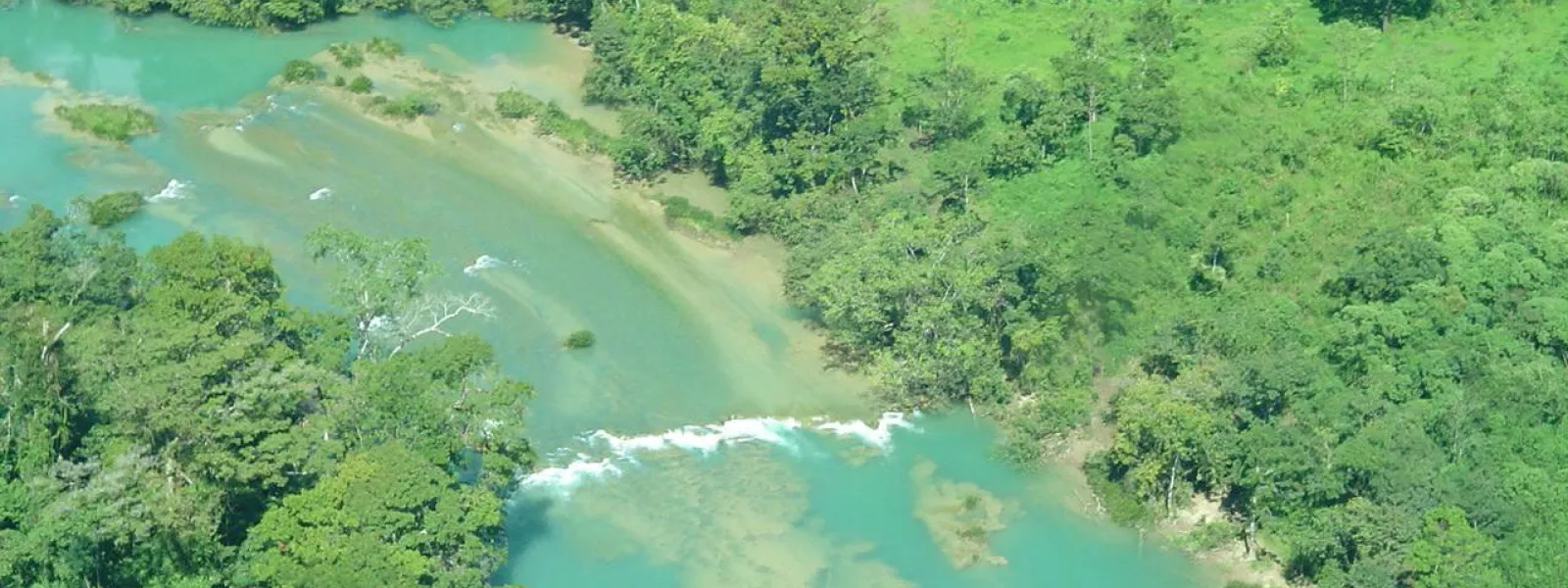
Guatemalan indigenous communities file complaint for dams’ damages
Photo: Fernando Reyes Palencia / Flickr.Affected communities have called on the Inter-American Development Bank to withdraw funding for the Pojom II and San Andrés dams for failure to comply with its operational policies. The mega-projects have damaged water sources and harmed the livelihoods of local indigenous people, particularly women.
Washington, D.C. Indigenous communities affected by Guatemala’s Pojom II and San Andrés dams have called on the Inter-American Development Bank to withdraw its investment in the mega-projects. A complaint filed before the Bank’s independent accountability mechanism explains how the serious social and environmental damages caused by the planning and construction of the dams resulted from the projects’ failure to comply with the Bank’s operational policies.
The communities are represented by the Interamerican Association for Environmental Defense (AIDA), the International Platform Against Impunity, and the Plurinational Ancestral Government of Q’anjob’al, Popti, Chuj and Akateko.
“The damages caused by the projects’ implementation are the result of non-compliance with the Bank’s operational policies, particularly its policies on environment and sustainability, indigenous people, gender, and information disclosure,” explained Liliana Ávila, AIDA attorney.
The complaint details how the dams were authorized without adequate community consultation, and how those affected did not receive sufficient information on the risks. In addition, community members who have peacefully resisted the projects have suffered attacks, threats, and harassment; in 2017, they reported the murder of one local resident, which has yet to be resolved.
The construction of the dams has also caused severe environmental damage, including water scarcity and pollution, which have affected local people’s ability to fish, grow food, and maintain their tradition lifestyle. The affected people of the microregion of Ixquisis, in the department of Huehuetenango, are primarily indigenous Mayans including the Chu, Q’anjob’al and Akateko ethnic groups.
“The damages from the dams are differentially suffered by women, since they are the primary managers of water use in their homes,” said Anabella Sibrián from the International Platform Against Impunity. “The women of Ixquisis face stigmatization and live in fear of retaliation for their peaceful opposition to the projects.”
The Pojom II hydroelectric plant is operated by Generadora San Mateo S.A, while San Andrés is run by Generadora San Andrés S.A. Both are subsidiaries of Promoción y Desarrollos Hídricos S.A., a Guatemalan company.
In 2013, IDB Invest, a private arm of the Inter-American Development Bank, approved loans of up to $9 million USD for the construction of Pojom II and up to $6 million USD for the San Andrés project.
“We our hope that the Bank’s accountability mechanism confirms the projects have violated internal policies and thus recommends that IDB Invest withdraw its investment from these harmful mega-dams,” Ávila said.
The Ixquisis communities were recently awarded the 2018 Front Line Defenders award for Human Rights Defenders at Risk for their valiant, peaceful struggle to defend their water and their territory.
Find more information on the case here.
Press Contact
Victor Quintanilla (México), AIDA, [email protected], +521 5570522107
